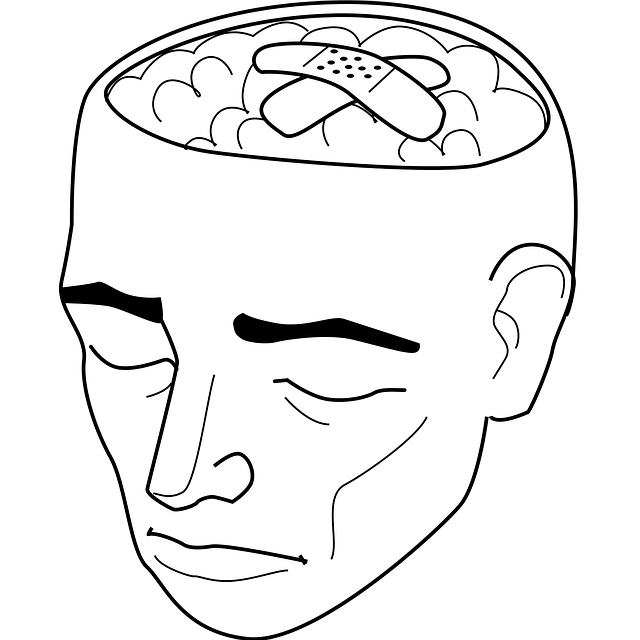Wheat Ridge German Speaking Therapy offers supportive mental wellness groups led by experienced facilitators who guide open dialogue, teach self-care, and enhance emotional intelligence. Through icebreakers, safe space guidelines, and active listening, they build trust and encourage connection among participants. Interactive exercises, education programs, and empathy-building strategies foster active participation and shared learning. Evaluation methods measure progress, with community outreach and a mental wellness podcast series expanding their impact.
Mental wellness groups provide a powerful support system, and effective facilitation is key to their success. This article explores various techniques used by facilitators, such as those employed at Wheat Ridge German Speaking Therapy, to create a safe and engaging environment. From building trust through connection to promoting active participation, we delve into strategies that enhance group dynamics. Additionally, we discuss measuring the impact of facilitation, offering insights into the art and science of group therapy leadership.
- Understanding Mental Wellness Groups: A Cornerstone of Support
- The Role of a Facilitator at Wheat Ridge German Speaking Therapy
- Techniques for Building Trust and Connection in the Group
- Promoting Active Participation: Strategies for Engaging Members
- Measuring Success: Evaluating the Impact of Group Facilitation
Understanding Mental Wellness Groups: A Cornerstone of Support

Mental wellness groups serve as a cornerstone of support for individuals navigating various challenges related to their mental health. These therapeutic settings foster a sense of community and belonging, allowing participants to connect with peers who may be facing similar struggles. At Wheat Ridge German Speaking Therapy, we recognize the power of group facilitation in promoting healing and growth. Our experienced therapists guide members through shared experiences, encouraging open dialogue and offering Crisis Intervention Guidance when needed.
By participating in these groups, individuals gain valuable Self-Care Practices and enhance their Emotional Intelligence. They learn from one another, exchange coping strategies, and build resilience. The group dynamic creates a safe space where emotions can be expressed freely, reducing feelings of isolation. This supportive environment is particularly beneficial for those who may not feel comfortable seeking individual therapy, offering an alternative path to improving mental wellness and overall well-being.
The Role of a Facilitator at Wheat Ridge German Speaking Therapy

At Wheat Ridge German Speaking Therapy, facilitators play a pivotal role in fostering mental wellness within the therapeutic setting. Their primary responsibility is to create a safe and supportive environment where clients can openly discuss their challenges and work towards personal growth. Through skilled facilitation, they guide group members in sharing experiences, offering perspectives, and learning from one another. This dynamic process encourages active participation, promotes understanding, and enhances emotional well-being.
The facilitator’s expertise extends beyond simply managing discussions. They employ various techniques such as conflict resolution skills training, social skills development, and crisis intervention guidance to equip clients with practical tools for navigating daily life. By integrating these strategies seamlessly into group sessions, facilitators empower individuals to build resilience, improve communication, and manage stress effectively. This holistic approach ensures that participants not only gain insights during their time at Wheat Ridge German Speaking Therapy but also develop lasting coping mechanisms for a healthier, more fulfilling future.
Techniques for Building Trust and Connection in the Group

Building trust and connection is a cornerstone for effective mental wellness group facilitation, especially in a diverse setting like Wheat Ridge German Speaking Therapy. Starting sessions with icebreakers that encourage participants to share personal interests or experiences can foster a sense of camaraderie. This helps break down initial barriers and allows individuals to connect on a more human level. Additionally, creating safe space guidelines collectively ensures every member feels heard and respected, facilitating open dialogue.
Facilitators play a crucial role in modeling vulnerability and active listening. Sharing relevant personal anecdotes or using Crisis Intervention Guidance techniques to navigate emotional moments can build trust. Encouraging mental wellness journaling exercises allows individuals to process their thoughts and feelings privately before sharing them with the group, enhancing connection through shared experiences and perspectives.
Promoting Active Participation: Strategies for Engaging Members

Encouraging active participation is a cornerstone of effective group facilitation, especially in settings like Wheat Ridge German Speaking Therapy. It ensures that every member feels valued and involved in the process, fostering a sense of community and shared learning. Facilitators can employ various strategies to engage participants, such as incorporating interactive Self-Awareness Exercises designed to prompt personal reflection and encourage open dialogue. These exercises might include guided meditations, journaling prompts, or group discussions centered around specific topics relevant to mental health and wellness.
Additionally, designing engaging Mental Health Education Programs tailored to the needs and interests of the group can significantly enhance participation. Using real-life scenarios, case studies, and interactive workshops allows members to actively participate in learning about various aspects of mental health. Furthermore, implementing Empathy Building Strategies helps create a safe space where participants can understand each other’s perspectives, fostering connection and collective growth.
Measuring Success: Evaluating the Impact of Group Facilitation

Measuring success is a vital aspect of evaluating the impact and effectiveness of group facilitation techniques in mental wellness settings, such as Wheat Ridge German Speaking Therapy. By implementing robust evaluation methods, facilitators can gain valuable insights into the progress and well-being of participants. This process involves diverse strategies, including self-Awareness Exercises that encourage members to reflect on their thoughts, feelings, and behaviors, fostering personal growth.
Additionally, organizations like Wheat Ridge German Speaking Therapy can assess the overall success through the Community Outreach Program Implementation, where facilitators collaborate with local communities to address mental health disparities. Furthermore, producing a Mental Wellness Podcast Series can provide an accessible platform to share valuable insights, tips, and stories from group sessions, reaching a wider audience and promoting mental wellness awareness.
Mental wellness group facilitation plays a pivotal role in creating supportive environments, as demonstrated by practices at Wheat Ridge German Speaking Therapy. By employing techniques that foster trust, connection, active participation, and measuring success through evaluation, facilitators can significantly enhance the impact of group therapy. These strategies not only improve individual mental health but also contribute to a vibrant tapestry of collective well-being, making group facilitation a crucial cornerstone of comprehensive support.














